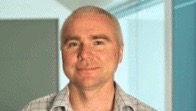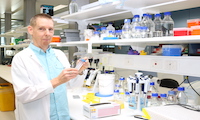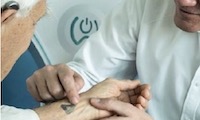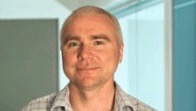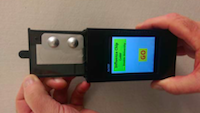The National Foundation for Medical Research and Innovation has implemented a strategy focused on supporting gap areas along the innovation pathway for biomedical research.
This targeted support assists researchers to advance their research towards the development of new innovations including medicines, vaccines, diagnostics and devices. These innovations normally require regulatory approval, commercial partnerships and investors as they progress. Learn more.
| Prof Bernard Flynn |
| Monash University |
| Pulmonary hypertension |
| Therapeutic |
- Established a spin-off company Ankere Therapeutics
- $10,791,639 investment seed funding raised
| A/Prof Anthony White |
| QIMR Berghofer |
| Alzheimer’s disease |
| Diagnostic |
Key outcomes:
- Industry partnership with Takeda Corporation
- Research contract with GenieUS Genomics, Melbourne to develop therapeutic drugs
- Leveraged $230,000 of external funding from private philanthropic and public sources
- Partnering with Dr Lesley Cheng from LaTrobe University
- NHMRC Ideas Grant, $830,000
- US Department of Defence CDMRP-ALS Program, $880,000
“A/Prof White’s team developed a unique approach to screening drugs that target the brain’s resident immune cells (microglia) on a person-by-person basis. They are able to generate microglia from a person’s blood cells (monocytes) in two weeks at a cost of ~$50 per person.“
| Dr Wei Deng |
| University of New South Wales |
| Cancer |
| Tool |
Key outcomes:
- Currently finalising a commercial licensing agreement, in parallel seeking major pharmaceutical investment
- Received NHMRC Ideas grant worth $260,000 based on preliminary data from this research
- Received Cancer Institute of NSW career development fellowship, $517,000
- Received UNSW interlude grant, $66,000
“Dr Deng’s innovative technology stems from her research that photodynamic therapy (PDT) agents can be triggered by low dose x-ray radiation. The stimulated PDT agents produce active species which destabilise liposome structure and trigger the drug release from the liposomes. Inspired by this discovery, her team creatively combined two existing clinical techniques used in cancer treatment – radiation and chemotherapy – through a nanoparticle drug delivery system“
| Prof. Mark Kendall |
| Australian National University |
| Dehydration |
| Diagnostic device |
Key outcomes:
- Australian spin-off company WearOptimo was formed as a result of NFMRI medal prize
- Multi-million funding round from Aspen Medical
- Sensor technology is heading into production with a $30m deal, which includes funding an advanced technology facility in Brisbane, QLD
- This funding from the QLD Government, WearOptimo and ANU will build a globally competitive high-tech manufacturing facility that will produce 26m sensors each year
- Awarded two grants from the Australia Government (>$1.8m) under the MTP Connect Biomedical Technology Horizons Grants Program
- First MicrowearableTM sensor patents filed
“Professor Kendall received a $50,000 award, in the form of a research grant, after being awarded the Dr John Dixon Hughes OAM Medal in 2017. This funding was applied towards the development and evaluation of a MicrowearableTM sensor for hydration monitoring. Since then, an Australian spin-off company, WearOptimo, was formed developing unique, functional diagnostic wearables for a range of consumer and medical applications.“
| Prof Bernard Flynn |
| Monash University |
| Cardiac fibrosis |
| Therapeutic |
Key outcomes:
- Established a spin-off company Cincera Therapeutics Pty Ltd
- NHMRC Development Grant, $684,000
- $7 Million series A investment
- See announcement here
- Monash Research Innovation Fund, $50,000
“NFMRI funding has enabled us to access the services of the Centre for Drug Candidate Optimization and to demonstrate that our antifibrotic drug molecules are suitable for oral administration. This data has been critical in attracting Venture Capital support for the formation of a spin-out company in 2018 that will enable us to bring our fibrosis therapy to clinical trials.”
| Prof Stephen Haswell |
| Deakin University |
| Infectious diseases |
| Diagnostic |
Key outcomes:
- Developed working prototype
- Mobile device providing results in approximately 75 minutes
- Costing around $20 per test
- Exploring product development pathways.
“The funding will enable an impressive team drawn from chemistry, biology, engineering, manufacturing and end users to work with NFMRI and NSW DPI to develop novel lab-on-a-chip technology that will represent a paradigm shift in the provision of medical diagnostics and care, filling a great unmet need.”

